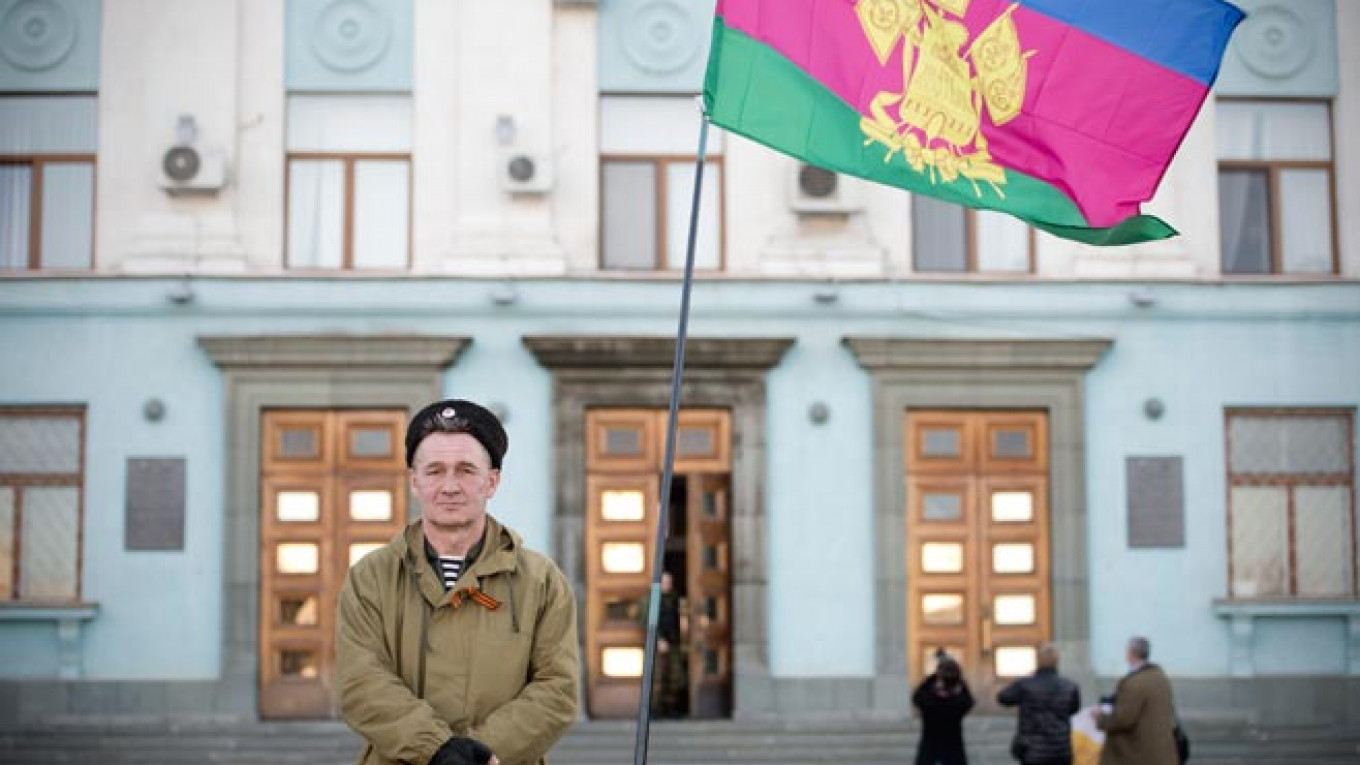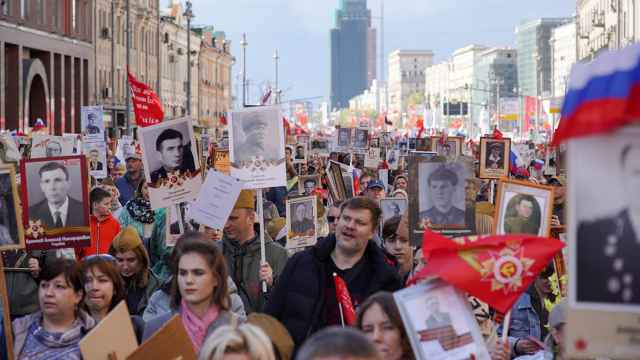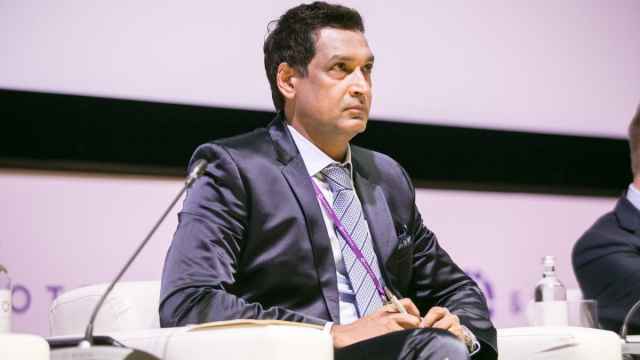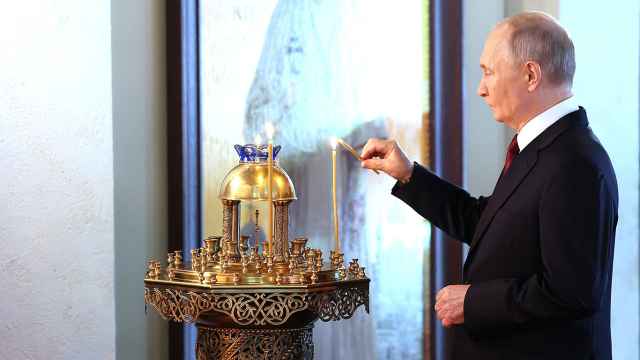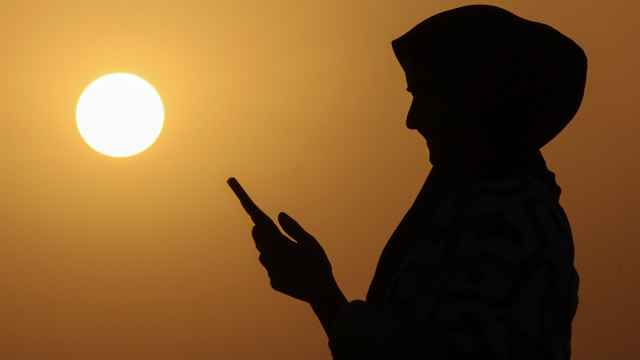While all eyes in the international community are on Russia's military maneuvers on its border with eastern Ukraine, the Crimean Tatars are raising concerns from within the recently annexed peninsula.
Throughout the Crimean crisis, Putin has largely ignored the Crimean Tatars' demands to have a voice in the region's political fate. But now we are witnessing some fallout from this.
On Saturday, the Crimean Tatars' assembly voted in favor of beginning "political and legal procedures aimed at creating ethnic and territorial autonomy of the Crimean Tatars on their historical territory in Crimea."
What does this mean for stability in the region and what does this mean for Russia?
To answer these questions, we must first understand the history of this group. The Crimean Tatars make up about 12 percent of the population of present-day Crimea. They are descendants of Golden Horde clans that settled in the peninsula by the 12th century and established the Crimean Khanate, which was a vassal state of the Ottoman Empire from the 15th to the 18th century. The Crimean Khanate became part of the Russian Empire in 1783.
During World War II, Stalin suspected the Crimean Tatars of collaboration with Nazi forces and deported them to Central Asia. The 290,000 Crimean Tatars who live in Crimea now are descendants of those deportees and surviving deportees who returned during perestroika and in the wake of the Soviet Union's collapse. During the 1990s, Crimean Tatars established themselves as a political community in a newly independent Ukraine, building mosques and forming the Qurultay, an assembly and representative body for Crimean Tatars in dealings with the Crimean government, the central government in Kiev, and with international bodies.
Many Crimean Tatars now live in compact settlements, farming and working in sectors of the economy often controlled by other Crimean Tatars. While much of the Russian-speaking population of the region leans toward Russia, the Crimean Tatars have looked to the central government in Kiev to guarantee their limited autonomy rights. Now, as they find themselves suddenly living on a territory claimed by Russia, the Crimean Tatars have many questions about their future.
I spoke with a Crimean Tatar youth movement leader from Simferopol who called himself Akhmar. He took part in the Maidan protests in December and January, taking the train to Kiev on several occasions for a few days at a time. He told me that his motivation for participating in the protests stemmed from dissatisfaction with Yanukovych's corruption and fraud, which caused standards of living in Crimea to drop and allowed several abuses of power, such as the misuse of Crimean national parks for private officials' exploitation.
"Everyone agreed that we needed a new president. I did not support any integration treaties then, but it was time for change … Lots of people went to Maidan, from Crimea too," he said.
While many Crimean Tatars took part in the Maidan protests, making the 1,200-kilometer trip to Kiev, many also stayed at home. Either way, it is clear that this group has a set of loyalties that differ from the Russian-speaking, Russia-leaning population of Crimea, which Putin claims to be protecting. In this context, it is no surprise that Putin began his March 18 speech with several nods to the Crimean Tatars. In a glorious Kremlin hall before signing the agreement on the integration of Crimea into Russia, Putin declared, "the total population of the Crimean Peninsula today is 2.2 million people, of whom … about 290,000 to 300,000 are Crimean Tatars, the majority of whom, as the referendum has shown, also lean toward Russia."
Yet, days before, the leader of the Crimean Tatars had successfully called for a Crimean Tatar boycott of this referendum, a fact Putin chose not just to ignore, but to dispute.
Putin went on: "True, there was a time when Crimean Tatars were treated unfairly, just as a number of other peoples in the Soviet Union. There is only one thing I can say here: millions of people of various ethnicities suffered during those repressions, and primarily Russians … I believe we should make all the necessary political and legislative decisions to finalize the rehabilitation of Crimean Tatars." In this odd display of solidarity, Putin acknowledged the special position of the Tatars, while simultaneously placing their travails within the greater context of the Russian history of suffering.
Refat Chubarov, leader of the Crimean Tatar governing body, speaking on Russian news channel Dozhd the day after the referendum, lamented that while he can only support Russian initiatives to rehabilitate Crimean Tatars, these initiatives should take place "with us, not for us."
While Putin is downplaying Crimean Tatar animosity toward Russia for the public, he is also attempting to coax the Tatars into acceptance through diplomatic channels. In past weeks, Crimean Tatar leaders have met with leaders of Tatarstan, a region in Russia populated largely by Russian Tatars. On March 5, Tatarstan President Rustam Minnikhanov signed an open-ended agreement on cooperation between Tatarstan and the new Crimean authorities, a move that symbolizes a helping hand for the Crimean Tatar population. The prospects for cooperation between Crimean Tatars and Russian Tatars remain ambivalent. Earlier this month, the Crimean Tatar community was shaken by the discovery of the tortured naked corpse of Reshat Ametov, a 39-year old construction worker and activist who had been missing since early March. He had participated in protests against Russia's military presence on the peninsula. Witnesses claim he had been taken away by men in unmarked military uniforms. Circumstances of the death remain unclear, but the incident has raised further concerns among the Crimean Tatars about their safety and security.
Over the course of our talk, the politically active Akhmar voiced clear support for Dmitry Yarosh of the Right Sector, a nationalist movement which is now taking the form of a political party in Ukraine. Russian news sources and officials have branded the movement a fascist group. "There are not any fascists there," said Akhmar of the Maidan protests and the Right Sector. "They do not dislike Russians and Russian speakers … I even speak Russian to them. They are just against Russian imperialism." Akhmar said that it was not typical for Crimean Tatar activists to work closely with the Right Sector. Yet in the context of an uncertain political climate in Kiev and following Russia's annexation of an ethnically complex region, new loyalties and unexpected coalitions begin to emerge.
Likewise, there is no history of Muslim extremism among the Crimean Tatars, but in a climate of radicalization among political groups in Ukraine, challenges to the territorial integrity of Ukraine, and uncertain economic conditions in the already poor Crimea, we have no idea what demands and actions to expect from the Crimean Tatar community in the months and even years to come. It is clear that a symbolic nod from Putin in his speech will not be the end of the story, and we have yet to see how the Crimean Tatars will act upon their claims for ethnic and territorial autonomy.
Olga Zeveleva is a Moscow-based sociologist and political analyst.
A Message from The Moscow Times:
Dear readers,
We are facing unprecedented challenges. Russia's Prosecutor General's Office has designated The Moscow Times as an "undesirable" organization, criminalizing our work and putting our staff at risk of prosecution. This follows our earlier unjust labeling as a "foreign agent."
These actions are direct attempts to silence independent journalism in Russia. The authorities claim our work "discredits the decisions of the Russian leadership." We see things differently: we strive to provide accurate, unbiased reporting on Russia.
We, the journalists of The Moscow Times, refuse to be silenced. But to continue our work, we need your help.
Your support, no matter how small, makes a world of difference. If you can, please support us monthly starting from just $2. It's quick to set up, and every contribution makes a significant impact.
By supporting The Moscow Times, you're defending open, independent journalism in the face of repression. Thank you for standing with us.
Remind me later.


